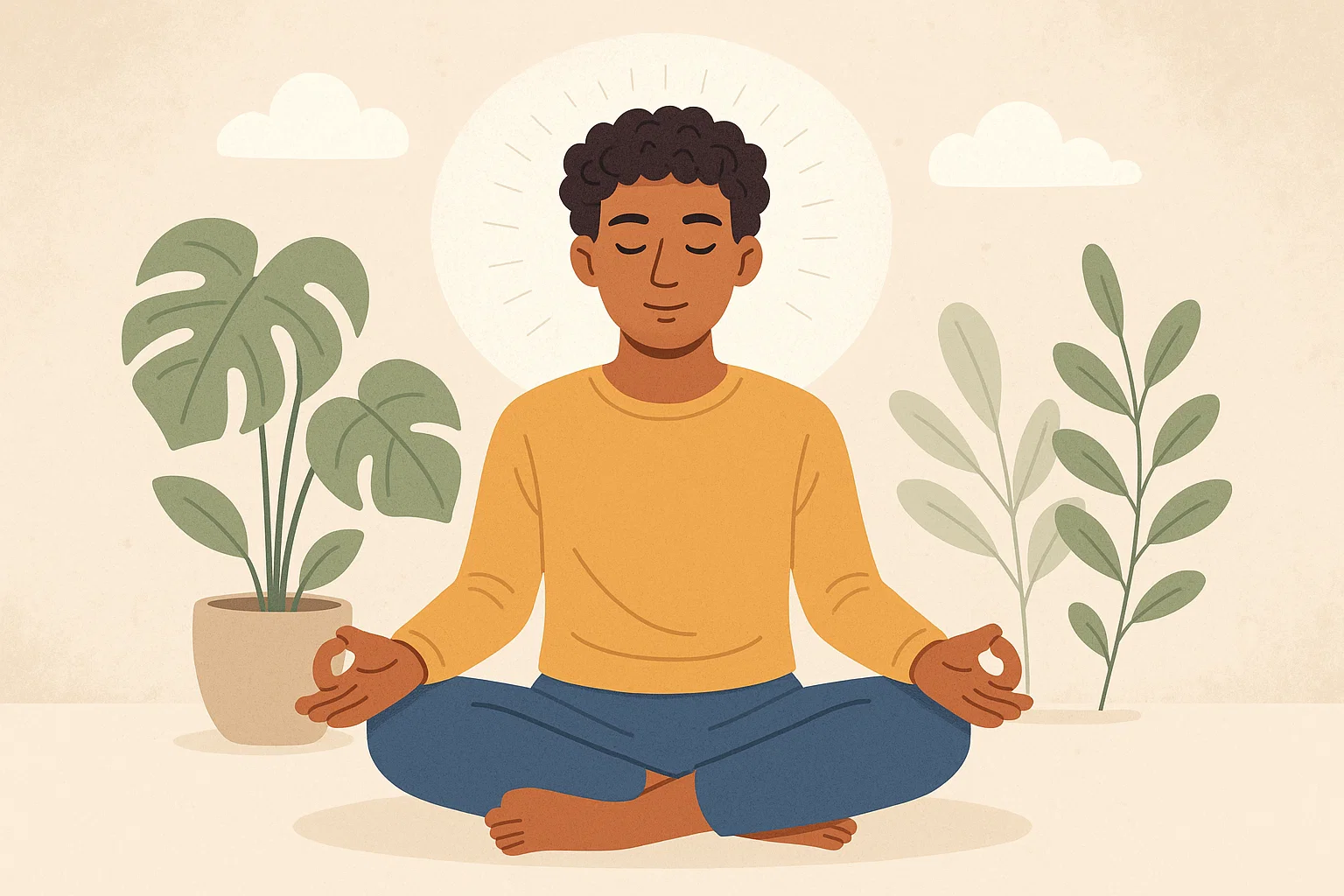Given how busy and connected the world is today, focusing on mental well-being has become a necessity. As stress, anxiety and burnout impact people from all walks of life, mental health has started to receive more attention. One of the best methods to stay emotionally balanced is to practice mindfulness regularly which helps us reconnect with the present, improve our awareness and manage our emotions. Mindfulness is not a fad; it has been proven by scientific studies. In today’s society, where people face mental health challenges often at work or at home, adopting mindful habits provides a useful and active method to improve emotional strength and overall health.
Comprehending Mental Wellness
Mental wellness includes being emotionally, psychologically and socially well. It determines a person’s way of thinking, feeling, behaving, managing stress and interacting with others. Having good mental health helps someone manage day-to-day issues, build strong relationships and be happier in life.
It is important to remember that mental health care should be practiced daily, not only during tough times. We should focus on building habits that promote a clear mind, happy emotions and true peace instead of just avoiding mental conditions. Focusing on mental wellness enables individuals to thrive, rather than only survive.
How Mindfulness Improves Mental Health
Mindfulness involves noticing what goes on in our minds, bodies and surroundings all the time, without judging or criticizing. Backed by meditation traditions from ancient times and modern studies in neuroscience, mindfulness has become an essential component in mental health therapy, stress reduction and developing one’s personal growth.
Mindfulness, repeated regularly, lessens the amygdala’s reaction to stress and encourages stronger activity in regions connected to reasoning and caring. The American Psychological Association reports that practicing mindfulness can improve someone’s mood, reduce anxiety and help with mental flexibility.

Tips for Practicing Mindfulness Each Day
You don’t need to sit for hours or follow complex steps to add mindfulness to your daily life. You could begin your day with a few moments of deep breathing, make every bite at lunch meaningful or take a short pause before responding to an urgent email.
An effective technique that is accessible to most is mindful or focused breathing. Just a few minutes of focusing on your breath and being still can lead to a clear feeling. Taking notice of things around you with attention, like noting the textures of your coffee cup or how the sun feels on your body, also helps.
Finding ways to be fully present in your daily life can make a big difference. There are many simple ways to find short breaks during your day and being mindful of them can be refreshing for your mind.
The Research Behind Mindfulness and Mental Wellness
There is strong evidence that mindfulness helps improve mental health. As shown in a study from Harvard University, regular mindfulness meditation for eight weeks caused measurable improvements in memory, empathy and stress-related parts of the brain.
A study published in Psychosomatic Medicine found that practicing mindfulness-based stress reduction leads to a lowering of cortisol which is associated with stress. It helps people feel good emotionally and also improves physical health by reducing blood pressure and providing better sleep.
Mindfulness is also used in clinical therapy programs, including MBCT to address depression and MBSR which often helps patients with anxiety and ongoing pain.
Practicing Mindfulness to Achieve Ongoing Mental Wellbeing
Getting ahead in mental wellness involves a long-term plan. This happens when you regularly practice habits that feed your mind and feelings. Practicing mindfulness regularly gives you distance from automatic reactivity so that you can respond thoughtfully.
If you are a student, a busy professional or anyone looking for more balance, mindfulness can hold you steady. Just five to ten minutes every day can lead to better focus, a boost in mood and increased mental clarity.
For people not sure what to do, using Headspace, Insight Timer or Calm can guide them through meditations, breathing exercises and mindful writing. By using these tools, mindfulness becomes both simple and useful.
Final Thoughts
There is a strong connection between mental wellness and mindfulness. These aspects, when practiced together, help build a life that is steady, joyful and full of meaning. Since life is busy and stressful, learning to calm ourselves and stay present is both a relief and an important act of self-care.
When you bring mindfulness into your daily habits, you welcome order amidst your confusion and serenity in your routines. Anyone can start their journey to mental wellness by paying attention to small details each day.
Resource:
Harvard Gazette (2011). “Eight Weeks to a Better Brain”
https://news.harvard.edu/gazette/story/2011/01/eight-weeks-to-a-better-brain/

